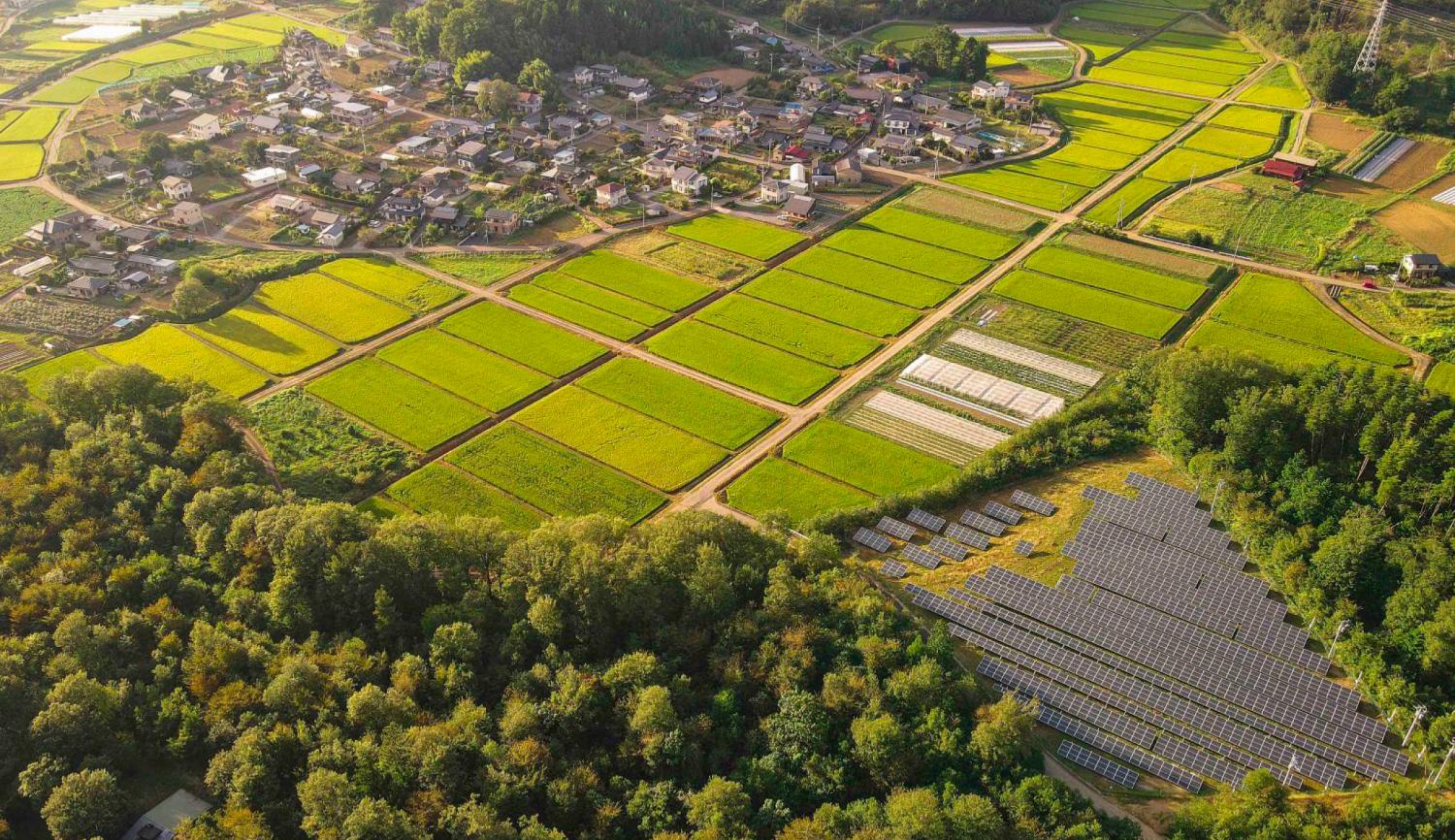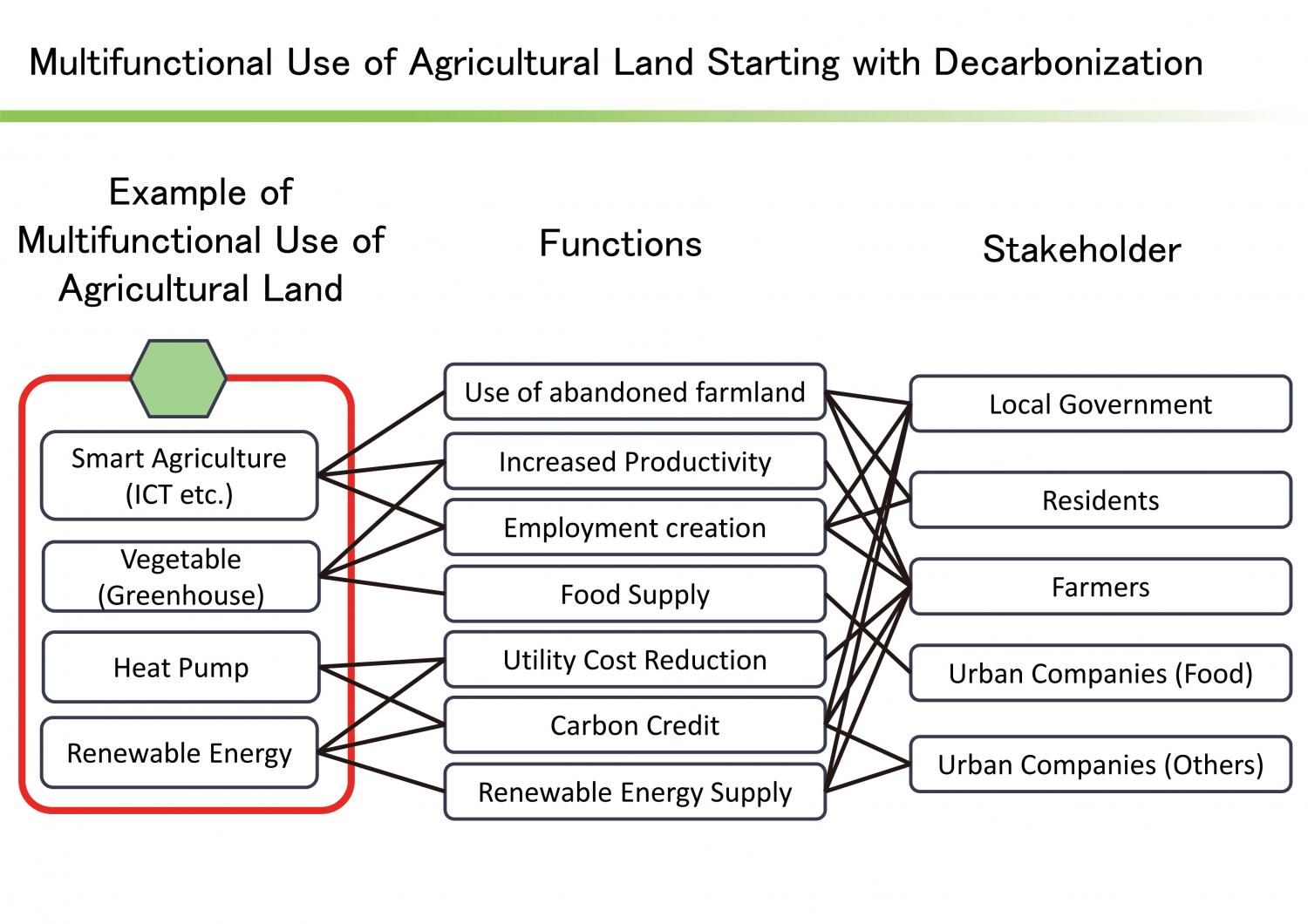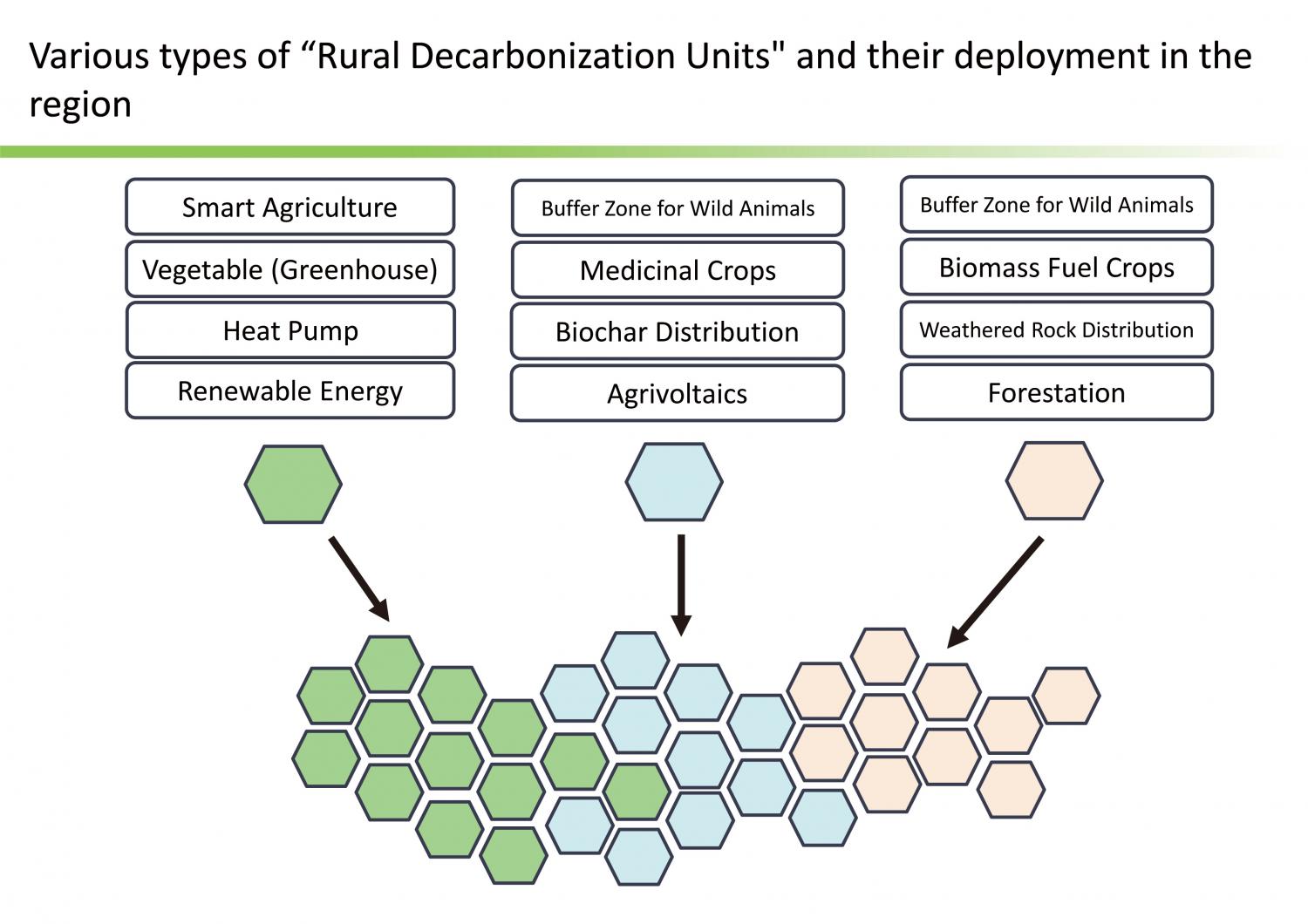
Fisical Year Completed
2024
[FS]Establishment of a new land use policy system of rural area that simultaneously realizes decarbonization, stable food supply, and solution of local issues
[FS]Establishment of a new land use policy system of rural area that simultaneously realizes decarbonization, stable food supply, and solution of local issues
Abstract
Rural areas are garnering significant attention as places contributing to the achievement of decarbonization. However, for instance, introducing solar power generation on agricultural land may lead to conflicts between energy production and food production. This research project focuses on land use issues in rural areas and aims to go beyond the traditional binary discussions. Instead, it seeks to establish a new land use policy system that simultaneously achieves decarbonization, stable food supply, and resolution of regional issues.
Why do this research?
Amid the urgent need to address global warming, rural areas are expected to contribute to the realization of decarbonization. For example, agricultural land is receiving significant attention as one of the few remaining suitable locations for solar power generation, as suitable areas for solar power are decreasing. Regarding this issue, there has been discussion about utilizing abandoned farmland nationwide for solar power generation, with arguments such as “if we implement solar power generation on all of X hectares of abandoned farmland nationwide, it would result in X megawatts.” However, progress in these initiatives has not been smooth. This is because such discussions evoke a binary debate between energy production and food production, and also because they are based on top-down approaches that do not sufficiently consider the actual circumstances of the regions.
This research aims to go beyond the traditional binary discussions and establish a new land use policy system for decarbonization in rural areas that simultaneously achieves decarbonization, stable food supply, and the resolution of regional issues, while flexibly addressing the actual circumstances of the regions.
Results
What we want to do
Our research team aims to establish a new land use policy system for decarbonization in rural areas, with “multifunctional land use” and “modularization” as key concepts.
Multifunctional land use refers to simultaneously utilizing a piece of land in various ways, such as decarbonization, food production, and solving regional issues, to achieve multiple benefits simultaneously. Through collaboration between rural areas and cities, we aim to go beyond the traditional binary debate and solve both local issues like depopulation and global issues like decarbonization simultaneously through land use (see Figure 1). To achieve this, it is necessary to balance detailed land use tailored to local conditions and the scale required by urban companies and other stakeholders.
 Figure 1. Multifunctional Use of Agricultural Land Starting with Decarbonization
Figure 1. Multifunctional Use of Agricultural Land Starting with Decarbonization
As a solution, our team envisions a new approach to rural land use based on “modularization” that differs from traditional top-down approaches. Specifically, we plan to construct various types of land modules (“rural decarbonization units”) that enable “multifunctional land use” based on decarbonization. By integrating and combining these modules, we aim to realize decarbonization in rural areas with a certain scale, while allowing customization for each region (see Figure 2).
 Figure 2. Various types of ‘Rural Decarbonization Units’ and their deployment in the region
Figure 2. Various types of ‘Rural Decarbonization Units’ and their deployment in the region
To achieve this, we will examine various conditions required from legal, policy, local community, and technological perspectives. Our goal is to create a “new commons” where rural and urban areas collaborate, starting with decarbonization.
News
-
{{ data.disp_date }}
{{ data.content }}
Project Leader
NOZU Takashi
Research schedule
| 2024 |
|---|
| FS |